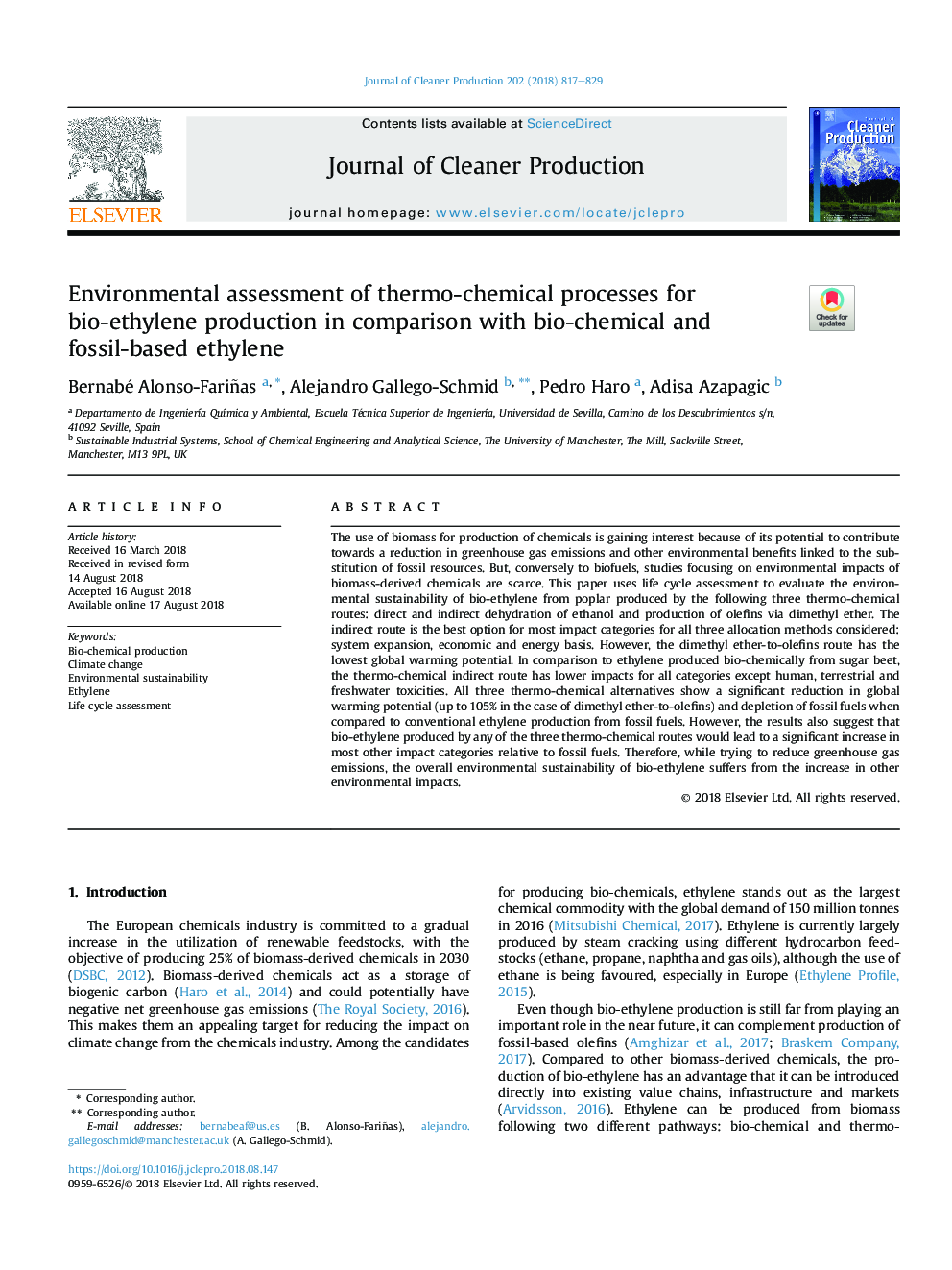| Article ID | Journal | Published Year | Pages | File Type |
|---|---|---|---|---|
| 8948866 | Journal of Cleaner Production | 2018 | 13 Pages |
Abstract
The use of biomass for production of chemicals is gaining interest because of its potential to contribute towards a reduction in greenhouse gas emissions and other environmental benefits linked to the substitution of fossil resources. But, conversely to biofuels, studies focusing on environmental impacts of biomass-derived chemicals are scarce. This paper uses life cycle assessment to evaluate the environmental sustainability of bio-ethylene from poplar produced by the following three thermo-chemical routes: direct and indirect dehydration of ethanol and production of olefins via dimethyl ether. The indirect route is the best option for most impact categories for all three allocation methods considered: system expansion, economic and energy basis. However, the dimethyl ether-to-olefins route has the lowest global warming potential. In comparison to ethylene produced bio-chemically from sugar beet, the thermo-chemical indirect route has lower impacts for all categories except human, terrestrial and freshwater toxicities. All three thermo-chemical alternatives show a significant reduction in global warming potential (up to 105% in the case of dimethyl ether-to-olefins) and depletion of fossil fuels when compared to conventional ethylene production from fossil fuels. However, the results also suggest that bio-ethylene produced by any of the three thermo-chemical routes would lead to a significant increase in most other impact categories relative to fossil fuels. Therefore, while trying to reduce greenhouse gas emissions, the overall environmental sustainability of bio-ethylene suffers from the increase in other environmental impacts.
Related Topics
Physical Sciences and Engineering
Energy
Renewable Energy, Sustainability and the Environment
Authors
Bernabé Alonso-Fariñas, Alejandro Gallego-Schmid, Pedro Haro, Adisa Azapagic,
